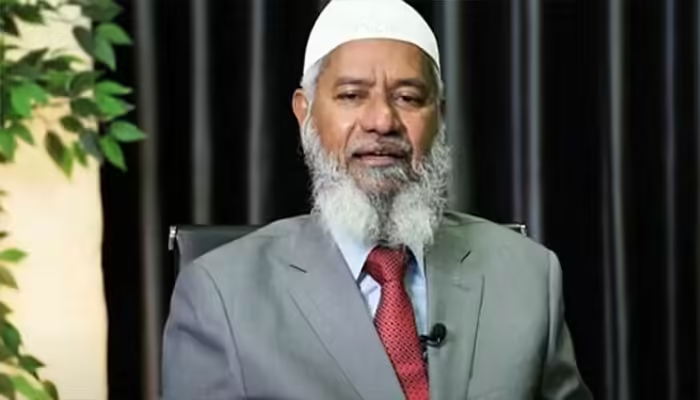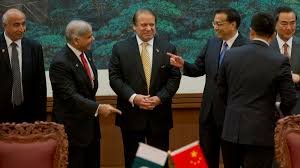Renowned Islamic scholar Dr. Zakir Naik has garnered widespread attention for his extensive knowledge of comparative religion and his approach to interfaith dialogues. Currently on a visit to Pakistan, Dr. Naik has been addressing gatherings and granting interviews in Karachi. Known for his calm demeanor and focus on spreading the message of Islam, Dr. Naik has offered profound insights into how he handles criticism, especially from those who speak against him.
During a recent interview with a local Pakistani channel, the host inquired about Dr. Naik’s views on two key aspects of his work: debates between Muslims and inviting non-Muslims to the teachings of Islam. His response shed light on the significance he places on both activities, while also providing a glimpse into how he navigates the challenges that come with his high-profile work.
The Importance of Debate and Dawah
Dr. Zakir Naik is an advocate for engaging in meaningful discussions, not only within the Muslim community but also with non-Muslims. In response to the interviewer’s question, he explained that both inter-Muslim debates and inviting non-Muslims to Islam (Dawah) are crucial for bringing about positive reform in society. He stated, “For me, the debates between Muslims and inviting non-Muslims to religion are both important for reform, because Islam invites us to bring us to the truth, so both are important.”
Dr. Naik’s perspective on debate reflects the broader Islamic tradition, where intellectual discussions have historically played a key role in resolving differences of opinion and clarifying religious teachings. He emphasized that debates between Muslims are necessary for internal reform, as they help refine religious practices and understandings. On the other hand, Dawah serves as a vital means of sharing the message of Islam with those who are unfamiliar with its teachings.
The Power of Silence in the Face of Criticism
Despite being a figure of immense influence and public attention, Dr. Zakir Naik has faced his share of criticism. From scholars to public figures, many have expressed disagreement with his views or methods. However, what stands out about Dr. Naik is his refusal to engage with those who speak against him or even abuse him. In the interview, he shared his simple but powerful formula for handling criticism: “If someone talks against me, I don’t respond to it.”
He further elaborated that he only pays attention to criticism if there is something constructive in it. “I tell my team that if there is any direction for me in this criticism, let me know. But if it’s just criticism, let them do it,” he said. This attitude reflects a deep sense of confidence and focus on his mission, where he prioritizes meaningful feedback over distractions that might hinder his work.
A Lesson in Humility
One of the most remarkable aspects of Dr. Zakir Naik’s approach is his humility in the face of personal attacks. He made it clear during the interview that he does not harbor any resentment towards those who abuse him, including scholars who might criticize him on public platforms. “I have no problem if someone abuses me, even if scholars speak against me on my stage, I have no problem,” he stated.
This response demonstrates a level of emotional maturity and adherence to Islamic teachings, which emphasize patience and forbearance in the face of adversity. Dr. Naik’s ability to overlook personal insults and remain focused on his mission is a testament to his strong character and deep understanding of the principles of Islam. Rather than retaliating, he continues to focus on his primary goal: spreading the message of Islam and encouraging others to follow the teachings of the Qur’an and Sunnah.
Criticism from Public Figures
Dr. Zakir Naik’s popularity and influence have made him a subject of public debate, with both supporters and detractors weighing in on his work. Recently, Pakistani actress Mishi Khan publicly criticized Dr. Naik, accusing him of making derogatory remarks about Pakistan and its national airline. However, true to his approach, Dr. Naik did not engage in a war of words with the actress. His calm response to such criticism reflects his belief in focusing on constructive discussions and not letting negativity derail his efforts.
This attitude aligns with the Islamic principle of avoiding pointless arguments and focusing on positive actions. Dr. Naik’s refusal to engage in personal feuds allows him to continue his work without being bogged down by distractions, further enhancing his credibility as a scholar who is committed to the larger purpose of spreading the truth.
Dr. Zakir Naik’s approach to handling criticism is an inspiring example of patience, humility, and focus on a higher purpose. His refusal to respond to personal attacks, his emphasis on learning from constructive feedback, and his unwavering commitment to spreading the message of Islam reflect a deep sense of responsibility towards his mission. Despite facing challenges from critics and public figures, Dr. Naik continues to engage in meaningful dialogues and Dawah, encouraging others to follow the teachings of Islam with grace and humility.
As a figure of influence, Dr. Naik’s example serves as a valuable lesson for those in the public eye: when faced with criticism or abuse, the best response is often silence, patience, and continued dedication to one’s goals. His ability to rise above personal attacks and focus on the bigger picture allows him to continue making a positive impact on society, both within the Muslim community and beyond.



